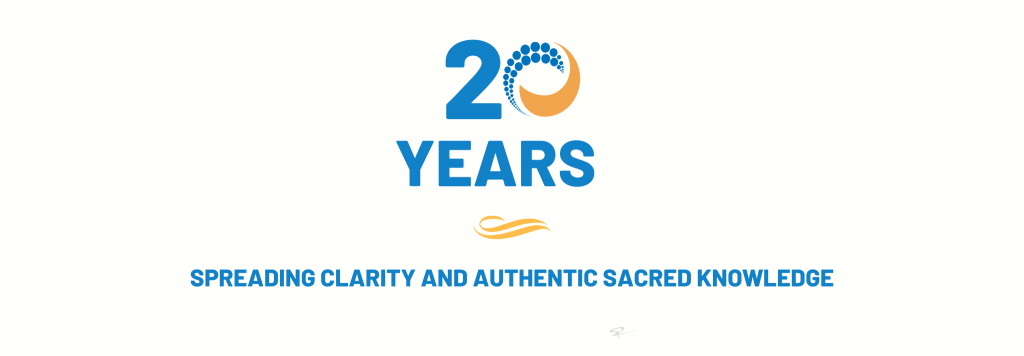The last ten nights of Ramadan are about heavenly food not earthly food

Aisha (may Allah be pleased with her) said that: “When the last ten nights of Ramadan arrived, the Prophet, peace and blessings be upon him, would tighten his belt, spend the night in worship, and awaken his family. (Bukhari and Muslim)
عَنْ عَائِشَةَ رَضِيَ اللَّهُ عَنْهَا قَالَتْ:” كَانَ النَّبِيُّ صَلَّى اللَّهُ عَلَيْهِ وَسَلَّمَ إِذَا دَخَلَ الْعَشْرُ شَدَّ مِئْزَرَهُ، وَأَحْيَا لَيْلَهُ، وَأَيْقَظَ أَهْلَهُ”. رواه البخاري ومسلم.
وفي رواية لمسلم: قَالَتْ: “يَجْتَهِدُ فِي الْعَشْرِ الْأَوَاخِرِ مَا لَا يَجْتَهِدُ فِي غَيْرِهِ”.
In another narration, Aisha (may Allah be pleased with her) said that the Prophet ( peace be upon him) would exert himself in worship during the last ten nights of Ramadan more than any other time. (Sahih Muslim)
Alhamdulilah we have reached these blessed nights
We are grateful to Allah Almighty that we have been able to witness Ramadan. We have lost some family members, some friends, some loved ones who longed to experience it, but could not.
We are grateful that we are able to fast. Not everyone is able to and has to pay fidya, but we were able to.
Why are these the best nights?
Allah Almighty preferred certain prophets over others, certain lands over others, certain times over others, and some months and some nights over others.
The best nights of the year are the last 10 nights of Ramadan. The best 10 days of the year are the 10 days of Dhul-Hijjah. The 10 nights have the most special night in the year, Laylatul-Qadr. The 10 days have the most special day. The Day of Arafat. This day and this night are both connected to the Qur’an.
Laylatul Qadr is the night when the divine revelation began in the cave of Hira in Makkah. The Day of Arafat is the day of the final piece of revelation and the completion of the divine message.
الْيَوْمَ أَكْمَلْتُ لَكُمْ دِينَكُمْ وَأَتْمَمْتُ عَلَيْكُمْ نِعْمَتِي وَرَضِيتُ لَكُمُ الْإِسْلَامَ دِينًا
Today I have perfected your religion for you, and have completed My favor upon you, and have approved Islam as a religion for you. (5:3)
Thus, the Revelation began in the last 10 days of Ramadan in Laylatul Qadr and was completed in the 10 days of Dhul Hijjah on Arafa day.
This is why we have two Eids. One to celebrate the beginning of the Revelation and the other one to celebrate the completion of the Qur’an. Therefore, Ramadan is the month of the Qur’an.
Tightening the belt
When Aisha (peace be on her) said the Prophet (peace be on him) would “tighten his belt” in the last 10 days of Ramadan, what does it mean? The majority of scholars that have commented on this Hadith agree that this means that the Prophet would abandon sexual relations with his wives in the last 10 nights. Because the time was dedicated to Allah Almighty.
Ramadan helps us refrain from consumption of food and drink and in the last 10 nights we should cut down on our connection with people. It’s a time to connect with Allah Almighty. It’s time to recharge our spiritual battery. Time to purify our heart, to settle our account with Allah Almighty. It’s a time for supplications and reflections.
Appeal to Allah
Each one of us is carrying load of concerns, requests, hopes, disappointment, and suffering from illnesses…etc. Hand over all your concerns to Allah Almighty and put forward your case. Say to Him ‘These are my concerns. I come to You. You are the only one who can resolve these for me. I ask no one but You. You are my Lord.’
How near are you to Allah?
This is why Allah Almighty talks about closeness in the verses of fasting:
“When my servants ask about Me I am near,” (2:186)
He is near us, but the question is are we near Him?
Closeness is conditional. Are we near to Allah Almighty or are we on our gadgets and on social media and wasting our time? Or are the women in the kitchen, cooking away?
The Prophet (peace be on him) said:
“I connect with my Lord in the last 10 nights”. (Bukhari and Muslim)
The last ten nights are not exclusively for men and they should not be spent in the kitchen
The last 10 nights are for everyone – men and women. They are not for men only, women are included. Men, give your wives a break. Don’t expect them to spend extra time in the kitchen cooking. Cut down time spent in the kitchen. We don’t need five dishes. Just one. Let women spend the night in worship too. What is the evidence for this? The Hadith of Ayesha which I mentioned earlier.
In the last 10 nights the Prophet (peace be on him) would waken everyone in his home to worship as well. Dedicate more time to Allah Almighty, the Qur’an and your ibadah. We need to be refreshed so we can take care of our selves and families spiritually and physically. We need to change the course of our actions in the last 10 nights. Don’t invite people over, instead dedicate your last 10 nights to ibadah. Not eating and drinking or instagramming your iftar with your friends!
Heavenly food vs earthly food
Aishah (may Allah be pleased with her) reported that The Prophet (peace be on him) said to his companions: “I am not like you. I spend the night while my Lord provides me with food and drink”. (Bukhari and Muslim)
And this was said in Ramadan.
We eat earthly food for 11 months. For one month Allah Almighty wants us to taste the heavenly food.
Instead, we give more invitations and attend more iftars. We eat more dishes and we compete in cooking. It’s not about this. It’s about how to connect to Allah Almighty properly. How to find your direction.
Cut out your desire for everything – for food, drink and intimacy. Dedicate all 24 hours of the day to to Allah Almighty.
Seclusion
The Prophet (peace be on him) would stay awake in worship. He would prolong his ruku and sujood. He would do more recitation and disconnect himself from everybody else. This is why eitikaf is the sunnah for those who are able.
It is not an excuse to neglect your responsibilities. To say, ‘you look after kids, do the washing, I’m praying’ – these are shared responsibilities. Lift the burden from our sisters. Share Allah Almighty’s mercy. Don’t go to one extreme or the other. The middle path is the prophetic path.
The Prophet (peace be on him) would wake his wives and children to share the mercy. Let’s benefit from the mercy of this night.
Do not transport your office to your eitikaf. If you are in eitikaf, leave your office behind. Disconnect. Do eitikaf.
The core of Ramadan is Laylatul Qadr and the core of Laylatul Qadr is forgiveness
When asked “What shall I ask for on Laylatul-Qadr?” the Prophet (peace be on him) said “O Allah. You are the Pardoner, Who loves forgiving. So forgive me.”
Aisha (may Allah be pleased with her) asked the Prophet (peace be on him) what to ask for on Laylatul-Qadr. He told to ask for ‘afw, which is an unconditional pardon that wipes out our acts of disobedience to Allah.
اَللَّهُمَّ إِنَّكَ عَفُوٌّ تُحِبُّ الْعَفْوَ فَاعْفُ عَنّي
Allaahumma innaka ‘afuwwun tuhibbu-l’afwa fa’fu ‘anni.
‘A’isha said she asked Allah’s messenger to tell her what prayers to say on lailat al-qadr if she knew which night it was, and he told her to say, “O Allah, You are forgiving and loves forgiveness, so forgive me.”(Ahmad, Ibn Majah, and Tirmidhi)
The core of Laylatul-Qadr is to gain Allah’s forgiveness. If you secure Allah’s forgiveness, you secure Jannah inshallah. And if you secure afiya (wellbeing), you secure goodness in dunya, so combine the two. Ask for both and secure both.
If we want to be forgiven, it is time to forgive those who wronged us. Not for their sake, but our sake. Free the sapce from your heart by letting grudges go. The heart should be dedicated to Allah.
1. Ask Allah to forgive you .
2. Forgive those who wronged you.
3. Apologise to anyone you have wronged. Ask Allah to soften their hearts to forgive you.
We ask Allah to increase our closeness and connection to Him and make us from those whom He releases from hellfire. We ask Allah to forgive us.
Shaykh Haytham Tamim Khutbah 22nd April 2022
Transcribed by Zayn Khan
How to fill your bucket when it is raining gold
- Climbing the stairs: How to continue your spiritual journey post-Ramadan
- How Allah strengthens the hearts of believers
- Why should you follow up one good action with another one?
- Don’t be a Ramadani person – Be a Rabbani person.
- How do you pray Salat al-Kusuf – the prayer during a solar eclipse

I’d like to support Utrujj!
Recommended Posts

How Allah strengthens the hearts of believers
April 19, 2024

Don’t be a Ramadani person – Be a Rabbani person.
April 10, 2024

